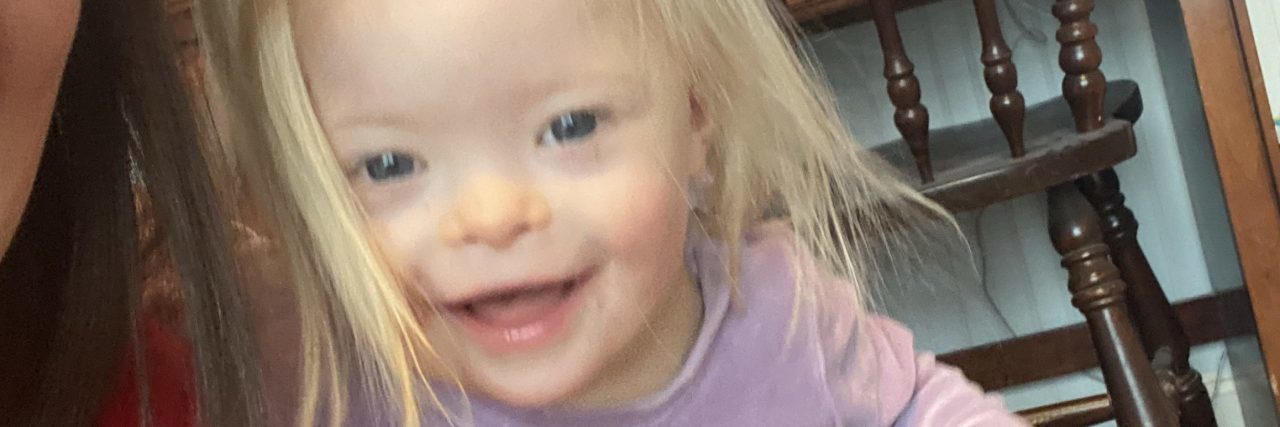The Point 'More Alike Than Different' Misses About Kids With Down Syndrome
Editor's Note
If you’re looking for creative inspiration, check out the Daily Inspirations group on The Mighty.
There are a lot of different mantras or phrases that come along with the Down syndrome community: “the lucky few,” “downright perfect,” etc. One of these phrases is “more alike than different.”
When Alice was born and someone told me that she will be “more alike than different” and said she would walk, talk, go to school, etc., it did give me a lot of relief. I was happy that she wouldn’t be an outcast.
But as Alice has grown, “more alike than different” doesn’t make much sense to me anymore. The truth is that Alice is very similar to her peers and always will be. She’ll walk, talk, run, go to school, have a job, have friends, etc.
But she is and will always be somewhat different from those without Down syndrome too. She has an extra 21st chromosome when most people don’t. This makes her walking and talking a little delayed, which isn’t the case for most. She will likely need a little more help in some areas of her life, unlike most of her peers. She has a flatter face and smaller ears and will likely be shorter than most kids her age.
So yes, she is different. And that isn’t bad. Viewing differences as negatives is what leads to so many people fearing or avoiding a child with Down syndrome. She is different in all of the ways listed above, but she is also different from my other kids in the way that she can’t see someone without giving them a hug and kiss, she finds joy and happiness in even the most mundane tasks and she has never met a stranger.
We are all different from each other — in looks, personalities, strengths, weaknesses and abilities — and that isn’t something bad. Thank God we’re all unique or things would be pretty boring.
The way Alice is so much like her typically-developing peers has actually shocked me. It’s nothing like I imagined. But she is also different from her typically-developing peers in a lot of ways too… and that’s OK. It’s more than OK, it’s awesome — and those differences should be celebrated too.

